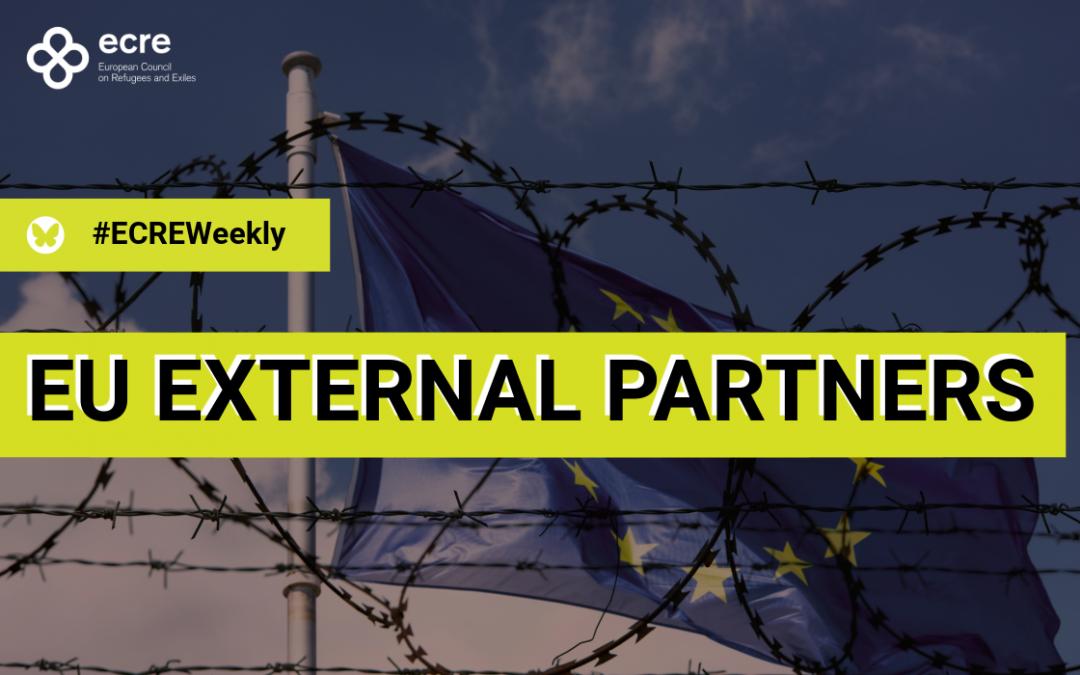- The EU will host its first ever summit with Egypt on 22 October in Brussels.
- The Norwegian government has intervened in the ongoing investigation into the recent attack on an NGO search and rescue (SAR) ship.
- A SAR NGO has accused Libyan militiamen of throwing people into the sea near Tripoli.
- The United Nations Special Rapporteur on the human rights of migrants has made recommendations on migration management to the Government of Mauritania and its international partners.
- Italy and Türkiye have signed an agreement aimed at limiting irregular migration from Libya.
The EU will host its first ever summit with Egypt on 22 October in Brussels. According to a recent European Council press release, the focus of the meeting will be on bilateral relations and advancing the political and economic partnership outlined in the €7.4 billion EU-Egypt Strategic and Comprehensive Partnership which was signed in March 2024. European Council President António Costa described the upcoming summit as an “excellent opportunity to further deepen our partnership, cooperate in addressing our common challenges and unleash the full potential of our relationship”. The EUobserver news agency reported that the agenda would cover the war in Gaza, the EU’s financial support to Egypt, human rights and migration co-operation. It also suggested that the EU would offer “more incentives” to the Egyptian government at the summit despite ongoing criticism of the latter’s treatment of refugees fleeing the civil war in Sudan.
The Norwegian government has intervened in the ongoing investigation into the recent attack on an NGO search and rescue (SAR) ship. On 11 September, the Norwegian Ministry of Foreign Affairs issued a statement in which it added its support to claims that the so-called Libyan Coast Guard had fired on the Ocean Viking – which is registered in Norway. It also called for an immediate investigation into the 24 August incident and urged the Libyan authorities to implement measures to ensure that similar incidents do not happen in the future. Separately, the chair of the European Parliament’s Subcommittee on Human Rights has accused the EU and EU member states of being complicit in the Libyan Coast Guard’s actions. Speaking on 5 September, French Green MEP Mounir Satouri said: “They were funded by EU taxpayers, and we enable these bullets to strike humanitarian workers, This is piracy”. Satouri has also demanded an investigation into the incident.
An SAR NGO has accused Libyan militiamen of throwing people into the sea near Tripoli. In a statement issued on 16 September, Mediterranea Saving Humans reported that during the night of 20-21 August, people aboard a “military vessel” forced ten shipwreck survivors into the sea in front of its rescue ship. Following an investigation, the NGO identified the military vessel as belonging to the 80th Battalion of the 111th Brigade which is headed by Libyan Undersecretary of Defence Abdul Salam Al-Zoubi who it describes as one of the Italian government’s “privileged interlocutors” in the two countries’ co-operation in border management. In a separate incident, a group of Somalis and Egyptians who arrived on the Italian island of Lampedusa on 8 September reported that Libyan authorities had opened fire on them during their voyage across the Mediterranean.
The United Nations Special Rapporteur on the human rights of migrants has provided recommendations on migration management to the Government of Mauritania and its international partners. In a statement issued on 12 September at the end of an official visit to the country, Gehad Madi welcomed recent reforms, including new laws against trafficking and migrant smuggling, the establishment of reception centres and strengthened maritime SAR operations. However, he also highlighted the large gap between Mauritania’s legal frameworks and their actual implementation, and noted that people on the move in the country continued to face serious violations, including arbitrary detention, overcrowded reception facilities, mass expulsions, violence during deportations and racial discrimination. Madi also urged the Mauritanian government to adopt a comprehensive asylum law with strong procedural safeguards and called on international partners, including the EU, to ensure that co-operation agreements include “fundamental guarantees, respect for human rights, transparency, and accountability”, and that “rather than focusing narrowly on securitization” they “prioritize protection and support Mauritania in building the institutional capacity it needs”.
Italy and Türkiye have signed an agreement aimed at limiting irregular migration from Libya. The “operational document”, which was approved by Italian Minister of Foreign Affairs Antonio Tajani and Turkish Minister of Foreign Affairs Hakan Fidan, provides for closer co-operation between the two countries’ coastguards and training for law enforcement agencies with a view to dismantling smuggling networks in the Mediterranean. At a joint press conference in Rome, Tajani said that the deal would be “very useful in Libya,” particularly in stopping departures of people trying to reach Europe. Fidan stated his determination to “strengthen the strategic partnership” between Italy and Türkiye, and highlighted the need to work toward a political process in Libya in order to guarantee its “stability”.
Related articles
- EU EXTERNAL PARTNERS: Migration commissioner discusses co-operation with Guinean minister ― EU to provide €500 million to Jordan ― Increased violence against Syrians in Lebanon ― Libyan Coast Guard attacks NGO rescue vessel ― More deaths of people on the move in Niger ― Many Syrians returning from Türkiye (August 2025)
- EU EXTERNAL PARTNERS: UNHCR calls for urgent funding for refugees in Egypt ― EU co-operation with ‘dodgy’ Libyan authorities continues unabated ― Turkish border guards convicted for torturing and killing migrants (July 2025)

